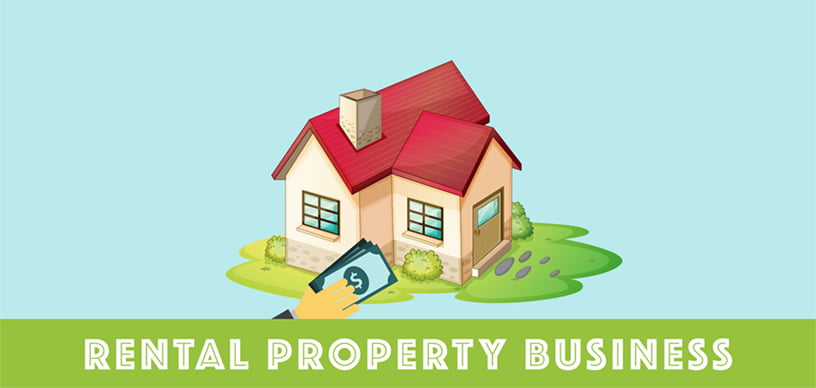Barring an inherently poor location choice and unforeseeable natural calamities, real estate is inarguably one of the best long-term investments one can make. There are ways to further augment that investment and make it a source of income of course, and constructing a rentable property is an ideal choice for that in today’s market.
Starting any property rental business requires major investments, but then again, the profits themselves are more than worth it. Even if the rent rates go down in an area or segment today, the chances are high that they will get back up again sooner or later. Despite all that, rental business owners do suffer from heavy losses every now and then, especially when they are only starting out. Taking a quick look through certain important aspects of starting in this sector could help quite a bit in avoiding those beginner’s losses and speed up the race to the breakeven point.
Criterion: Selection of Asset Based on Purpose
A place suited for constructing a commercial facility may be a bad choice for building an apartment complex instead. That is not a rule and it may not apply in a lot of situations, which is why it’s all the more reason to choose an asset criterion that best fits the property’s location and surroundings.
Of course, the same property can be ideal for multiple types of rental construction, but the landowner and the investors need to find the most suitable and profitable use for the land. Market research data should support their choice of criterion, before construction should even begin.
Criterion: Selection of Purpose Based on Asset
On the flip side, if we look at it from the perspective of an investor looking to find space for his/her rental business, they should choose a piece of land carefully so that it best suits their idea. However, while dealing with a volatile market, adopting the dynamic approach towards criterion selection can be considered as a more practical tactic.
The idea should center around the property, its present value, future potential value and suitability to the rental market. If it is possible to get an excellent deal on a piece of potent commercial property, then the investor could very well decide to change their initial plan of starting a residential rental business to make the best of an opportunity in front of them. There are other aspects such as the founder’s budget, knowledge, experience, etc. to consider as well, but matching rental property with the ideal rental business is by far the most important first step in this segment.
Construction: Design, and Functionality is of Paramount Importance
After an appropriate selection has been made regarding the business sector and subsector, the next step involves choosing a civil engineering firm which can deliver exactly what is required. Given that the aspiring rental business owner may not have first-hand knowledge in the field, especially when it comes to the actual construction, they must make sure that the chosen firm is properly equipped and experienced to handle their project. The construction/constructions should be legally compliant, aesthetically pleasing and functionally impressive, in view of the industry that it will serve post-construction.
This is crucial as design and functionality will suffer otherwise, which would consequently reduce the rental value of a commercial/residential property permanently. An experienced civil engineering firm should already have a history of successful and relevant rental construction projects to their name. Additionally, the firm could also aid the aspiring business with everything from site selection and permit acquisition to project completion, but that’s variable.
REI Clubs: Finding Investors
It is advisable to join a real estate investor’s club to find partners and investors for financing the project. Even if the main party is capable of undertaking the whole project on their own, that is not always the best course of action to take.
Having an experienced partner/investor in rental real estate onboard could help in avoiding amateur on-field mistakes, but there is more to it. They generally have strong connections of their own, which could allow a young businessman access to lower rates for raw materials, or help them find more valuable real estate. All of this in addition to the financing could make a huge difference in improving a rental construction project’s odds of success.
Additional Financing: Only When Necessary
Loans are inevitable and even advisable, especially when bootstrapping a huge rental project entirely is not a feasible option for the landlord. However, a landlord should only seek out loans when the present funding by investors and partners is not sufficient to meet all needs. 203K loans, mortgages and FHA loans are the usual sources for additional funding, but keeping the sources to a minimum can make things simpler to manage.
Not all calculations can be made beforehand since new developments can make a project more expensive than estimated initially. If multiple loans are unavoidable, hiring an accountant might be necessary to keep track of the loans taken, their respective interest rates and the total compound interest being paid by the landlord.
There will be additional needs for rental property management and marketing, later on, that is, after the construction is complete. Budgeting in that department will be a considerably easier task, as the business operations within the rental sector depend mostly on operating cash management more than anything else. Nevertheless, that is when the calculations will begin to get truly complicated, and the landlord might require accounting and property management services more than ever before to ensure timely payments, repayments, tax payments, filings etc.
Whether the landlord choses to hire an external service or manage it on their own, the following responsibilities are to be expected and catered to:
• Understanding and complying with the landlord-tenant regulations, as imposed by the concerned state
• Setting rent rates and security deposit amounts in compliance with the above
• Screening potential tenants, both commercial and residential
• Handling rent collection and eviction responsibilities (if and when applicable)
• Taking care of maintenance, repairs and renovations, if and when they arise
• Identifying and marketing to the target audience to fill vacancies,as applicable
As far as getting started is concerned, these are all the critical aspects which require most attention from an aspiring rental business owner. The rest will vary depending on what would be appropriate and applicable for a particular situation.







